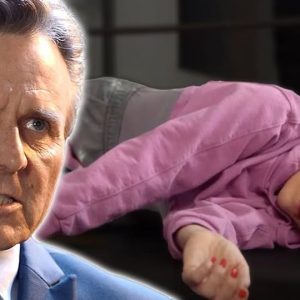**Spoiler Alert: Gute Zeiten – Pietro Lombardi’s Munich Concert Cancellation**
The headline, “Pietro Lombardi – Er sagt München-Konzert ab: ‘Bin schockiert und traurig’,” immediately sets a somber tone for the film “Gute Zeiten,” hinting at a devastating event impacting Pietro Lombardi’s life, specifically revolving around a scheduled concert in Munich. The movie doesn’t just depict a simple cancellation; it delves deep into the emotional turmoil and unexpected circumstances surrounding the decision.
The film opens with Pietro, seemingly at the peak of his career, brimming with excitement for his upcoming Munich concert. He’s shown meticulously preparing, rehearsing with his band, and engaging with fans, building anticipation for the highly anticipated show. The narrative carefully crafts a sense of his dedication and passion for his music, emphasizing the significant impact this concert holds for both him and his loyal fanbase.
However, the idyllic pre-concert atmosphere dramatically shifts. The film doesn’t reveal the exact reason for the cancellation immediately, instead gradually unveiling the truth through flashbacks and present-day scenes. We see Pietro struggling with an undisclosed personal crisis – perhaps a serious family illness, a deeply personal loss, or even a significant health scare. This crisis isn’t merely a minor inconvenience; it’s a gut-wrenching ordeal that profoundly affects his well-being and directly impacts his ability to perform. The movie expertly portrays his internal conflict between his professional commitments and his urgent personal needs.
The shock and sadness mentioned in the headline are not just for show. “Gute Zeiten” vividly depicts Pietro’s emotional breakdown. We witness his vulnerability, his struggles with accepting the situation, and the immense pressure he feels from both internal and external sources. The cancellation is not a simple business decision; it’s a heartbreaking acknowledgement of his incapacitation, a poignant reflection of his prioritization of personal well-being over professional obligations.
The film doesn’t shy away from showing the ripple effects of the cancellation. We see the disappointed reactions of his fans, the logistical challenges of rescheduling, and the financial implications. Pietro’s team is shown struggling to manage the situation, facing the wrath of disappointed ticket holders, and grappling with the media scrutiny that follows. The film highlights the immense responsibility Pietro feels towards his fans and his commitment to making things right, hinting at future attempts to reschedule or offer alternative performances.
The “schockiert und traurig” element is magnified by the inclusion of scenes depicting Pietro’s attempt to communicate the news to his fans. This is not a simple press release; it’s a deeply personal message laden with emotion, vulnerability, and raw honesty. The film uses this communication to further emphasize the seriousness of the situation and underscore the depth of Pietro’s regret and sorrow. The movie ends on a note of uncertainty, leaving the audience wondering about the long-term consequences of this unforeseen event and questioning whether Pietro will fully recover and return to the stage. The cancellation is presented not as an ending but as a significant turning point in his life, highlighting resilience and the unpredictable nature of life itself.





